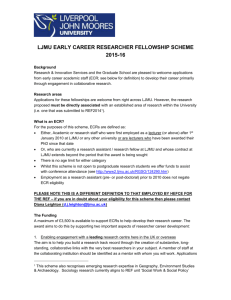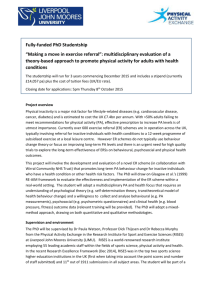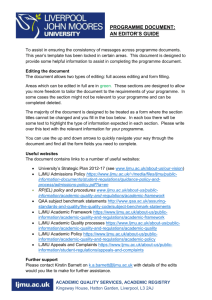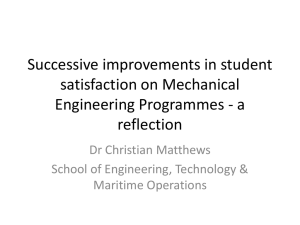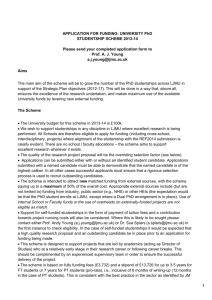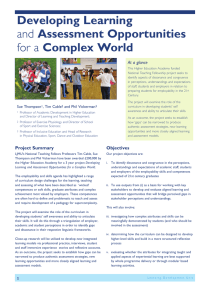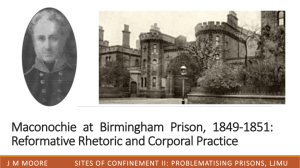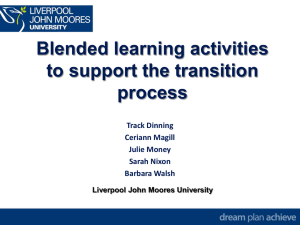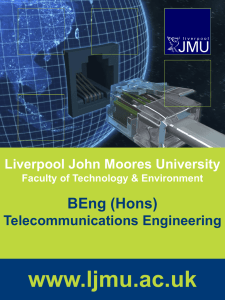view `Introduction to Low Carbon Innovation Hub`
advertisement
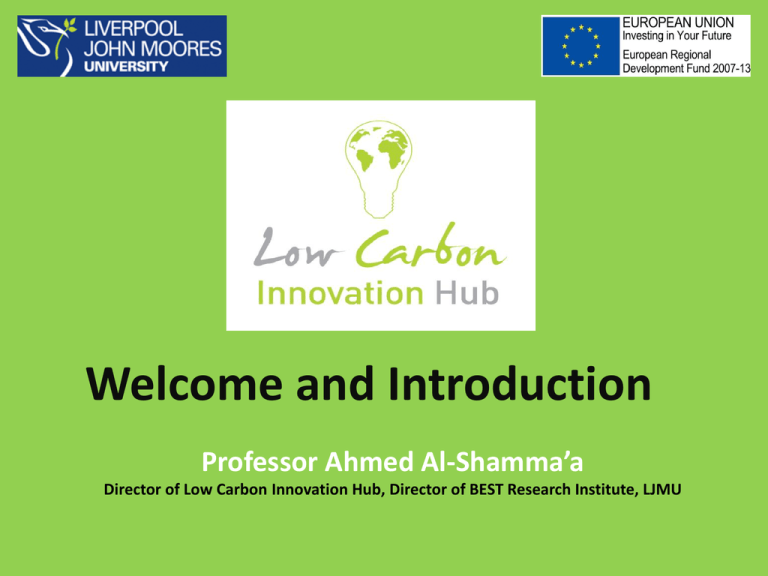
Welcome and Introduction Professor Ahmed Al-Shamma’a Director of Low Carbon Innovation Hub, Director of BEST Research Institute, LJMU Our University ambitions and main aims 2012- 2017 • A university that supports and develops targeted areas of world-leading research excellence and which encourages emerging areas of excellence with potential for international impact. • A university that supports the development of a vibrant and sustainable research and scholarship environment, firmly linked to learning and teaching. • A university that initiates and supports research collaboration with partners. • A university where scholarship is central to the personal development of every member of academic staff. Our pedigree • Founded in 1825, LJMU has grown into one of the UK’s most dynamic and progressive universities. Currently ranked top 100 New Universities in the World. • The University is organised into Four Faculties comprising 26 Academic Schools. • LJMU is the 15th largest university in the UK with over 20,000 students in Liverpool and internationally plus 2,500 staff. • External research funding, from sources such as our industrial partners, the EU, TSB, directly from Industry, Welcome Foundation and research councils, including the BBSRC, EPSRC, MRC, STFC and NERC. What the Low Carbon Innovation Hub (LoC) project is all about? • The Low Carbon Innovation Hub is funded by the European Regional Development Fund therefore no initial investment is needed from the companies that we work with. • The project has the potential to bring significant economic benefits to the SMEs of Merseyside, supporting businesses to reduce emissions and develop low carbon technologies that will put the region at the forefront of new and expanding global markets. • LJMU has niche and unique strengths in low carbon technologies and has a key role to play in the implementation of the low carbon agenda across Merseyside. Aims • LoC is to create innovative low carbon goods, processes and services, developed through collaborative partnerships between local companies in Merseyside and University researchers. • To work with local SMEs on an individual basis in order to identify opportunities for low carbon development which will ultimately bring about economic and environmental benefits for businesses and the community. • Giving local SMEs a significant advantage in areas such as: competitive Overview of three themes Low Carbon Technologies • Smart Building Technologies • Energy Management • Carbon Finance • Low Carbon Design and Planning Environmental Management and Clean Technologies Renewable Energy • Environmental Monitoring • Resource Efficiency • Air Pollution Control • Energy from Waste and Biomass • Waste Management • Sustainable Business Practices • Water/ Waste Treatment • Green Deal Agenda • Facility Management Our structure for proven delivery http://www.ljmu.ac.uk/BLT/BEST/index.htm Key benefits for SMEs • The support offered by LoC can help to improve the way your business operates and help you to comply with future low carbon business legislation effectively. • Low carbon innovation can have a number of direct benefits for your current and future business practices such as: • Increase Profitability • Increase Knowledge • Increase Competitive Advantage • Access to University Resources (Research Innovation Services, Development Fund) • Information Sharing • Access to Specialist Funding Examples of Benefits Low Carbon (LoC) Team • Mr. Paul Dickson, Project Manager • Dr. Eduardo Cordova-Lopez, Researcher • Dr. Mohamad Ateeq, Researcher • Dr. Mawada Abdellatif, Researcher • Miss Laura Bainbridge, Marketing & Event Officer • Mrs Liz Hoare, Project Administrator Making it? Bringing it all together • • • • • • • Fully supportive of the LEP low carbon initiatives Outreach, LJMU Global Eco Innovation Centre, UoL Renewable Energy and Energy Efficiency Housing, Sefton Liverpool Chamber of Commerce, Chamber Growth Accelerator Open Labs, LJMU

